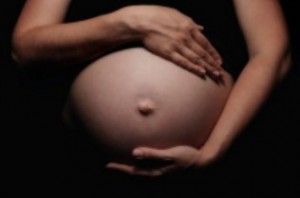Blog post by Kate O’Leary
 July 2015 saw a update to South Australian surrogacy laws, with the most notable amendment being the potential to locate a local surrogate by way of the establishment of a Surrogate Register. In effect, the Register will allow women willing to become surrogates to register with the State Government.
July 2015 saw a update to South Australian surrogacy laws, with the most notable amendment being the potential to locate a local surrogate by way of the establishment of a Surrogate Register. In effect, the Register will allow women willing to become surrogates to register with the State Government.
The Register will be contained within the proposed State Framework for Altruistic Surrogacy. The Register will not be available for public inspection, but will be available to certain classes of people, such as intended parents. The yet to be seen Regulations will specify those classes of people who will have access to the Register and will likely be available to those intended classes of people via Repromed.
The proposed amendments by way of the State Framework for Altruistic Surrogacy is not too dissimilar to the requirements previously demanded by the Family Relationships Act 1975. It sets out that any potential surrogate intending to register must:
- Be aged 18 years or older; and
- Be a resident and domiciled in the State; and
- Be a permanent resident of Australia; and
- Satisfy any other requirement set out in the Regulations (which at the time of writing, have not been published).
The requirement for a Recognised Surrogacy Agreement (‘RSA’) to be entered into has not changed.
In its previous form, the Family Relationships Act sought that the parties to the RSA, being the intended parents and the surrogate mother and her partner, attend on three counsellors: one for all of them, one for the intended parents, and one for the surrogate mother and her partner. The effect of the amendment is that all parties to the RSA now have to attend on one counsellor only.
A further positive amendment to the legislation is the automatic provision for the surrogate to be provided counselling post-birth. This was previously at the discretion of the parties to the RSA.
With respect to overseas surrogacy arrangements, it is now a requirement for anyone in South Australia who is seeking overseas surrogacy to have their arrangement approved by the Attorney-General. The legislation fails to determine on what basis such approval (or disapproval) will be provided. It remains so that even in the event approval is granted, parentage orders cannot be sought in the South Australian Youth Court. With this in mind, surrogate mothers from foreign jurisdictions continue to be recognised as the legal mothers of the children born to overseas surrogacy arrangements.
This quite clearly has the most impact on same-sex couples and single people who continue to be discriminated against by the Family Relationships Act and the Assisted Reproductive Treatment Act 1988. The inclusion of same-sex and single people in the class of those who are permitted to engage in Recognised Surrogacy Agreements, in the writer’s view, would dramatically reduce the need to travel to foreign jurisdictions for surrogacy purposes.
The South Australian Government has implemented the update to South Australian Surrogacy Laws to the Family Relationships Act despite, in March 2015, the Commonwealth Parliament announcing an inquiry into the surrogacy landscape in Australia. The inquiry is set to focus on whether Australia should have uniform surrogacy laws, and whether commercial surrogacy within Australia should be legalised.
Watch this space for future developments in South Australian Surrogacy Laws.
Contact the family lawyers at Culshaw Miller in Adelaide today for more information. Adelaide: (08) 8464 0033 or email
